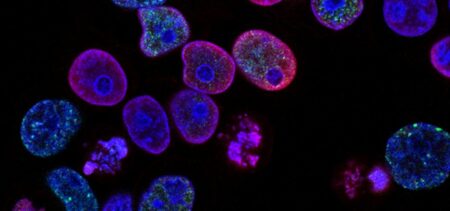The last few years have been challenging for scientists, researchers, and doctors around the world. As the COVID-19 pandemic spread everywhere and an increasing number of people contracted the virus, the development of new vaccines, treatments, and drugs became crucial. Biopharmaceutical companies in the US and abroad struggled to develop, test, and deliver the much-needed treatments to stop the coronavirus spread and protect people everywhere. Their efforts not only proved highly effective in containing the pandemic, but also gave people suffering from other diseases new reason for hope.
It’s clear that people in the US and abroad need new and better treatments that have the potential to transform devastating diseases into manageable conditions. Biopharmaceutical companies and health systems in various countries may need to compete in terms of innovation to deliver better patient outcomes and lower healthcare costs. The COVID-19 pandemic also demonstrated the importance of international scientific collaboration across the public and private sectors to develop, test, and deliver better vaccines and treatments. The good news, however, is the fact that recent innovations have led to the development of at least five new treatments that could soon alleviate debilitating diseases.
Treating Irritability in Adolescents with Autism
As News-Medical reports, a new trial for testing if a drug targeting gut bacteria can also relieve irritability in adolescents with autism is now underway. Researchers from the Murdoch Children’s Research Institute, Queensland Children’s Hospital, University of Sydney, Southern Adelaide Local Health Network, and Flinders University have joined forces to recruit teenagers from Australia, the US, and New Zealand to participate in the study. They believe that AB-2004, a treatment that targets the microbiome-gut-brain axis, can relieve some neurological symptoms associated with autism, including irritability in children and teens.
Using Stem Cell Transplants to Treat Parkinson’s
The Centers for Disease Control and Prevention (CDC) has already proved that Parkinson’s disease has evolved to become the second most common neurodegenerative disease after Alzheimer’s disease. While symptoms include tremors, stiffness, and difficulty with balance and coordination, and even walking and standing can become difficult as the disease advances, recent research has brought good news for patients. According to The Guardian, a new therapy involving stem cell transplants will undergo its first trial involving patients from both Sweden and the UK. The study could go on for at least two years, but researchers believe that patients could benefit from the results in approximately five years.
Fighting Against Sleeping Sickness in Africa
While Autism and Parkinson’s disease are common in developing and developed countries, diseases such as Human African trypanosomiasis or sleeping sickness are exclusive to some parts of the world. In fact, sleeping sickness only occurs in Western and Central Africa, Eastern and Southern Africa, and Latin America, according to the World Health Organization (WHO). However, the disease has already caused multiple epidemics, prompting researchers to work harder to find a cure. The Drugs for Neglected Diseases initiative (DNDi) and Sanofi have recently developed a therapy that promises a success rate of up to 95% in treating this debilitating illness.
Approving a New Treatment for Ovarian Cancer
Ovarian cancer is undoubtedly one of the most important issues now affecting Americans. The CDC warns that it causes more deaths yearly than any other gynecologic cancer in the country. While the public health agency continues to work on raising awareness of the condition, the Food and Drug Administration analyzes promising new treatments. The federal agency has recently cleared a new medicine to treat certain types of ovarian cancer in patients who otherwise don’t get optimal outcomes. Mirvetuximab soravtansine-gynx, also known as Elahere, has been approved for treating epithelial ovarian cancer and cancers of the fallopian tubes and peritoneum.
Effectively Treating Alzheimer’s Disease
Approximately 6.5 million Americans are struggling with Alzheimer’s disease, according to the CDC. This debilitating illness not only affects those parts of the brain that control thought, memory, and language but can also inhibit the patient’s ability to perform daily tasks as it progresses. Although there is still no cure for Alzheimer’s, researchers believe that new drugs like Lecanemab could be used to slow down its clinical progression. Developed by pharmaceutical companies Eisai and Biogen, this new drug provides patients in the US and abroad with the hope that their cognitive decline could be reduced in the future.
Conclusion
Numerous biopharmaceutical companies, as well as scientists, analysts, and doctors worldwide, are trying to push the boundaries of science and develop new treatments that could ameliorate debilitating illnesses. Innovative therapies for autism, neurodegenerative disease, cancer, and numerous other diseases will likely become available for patients everywhere in the coming years.



































